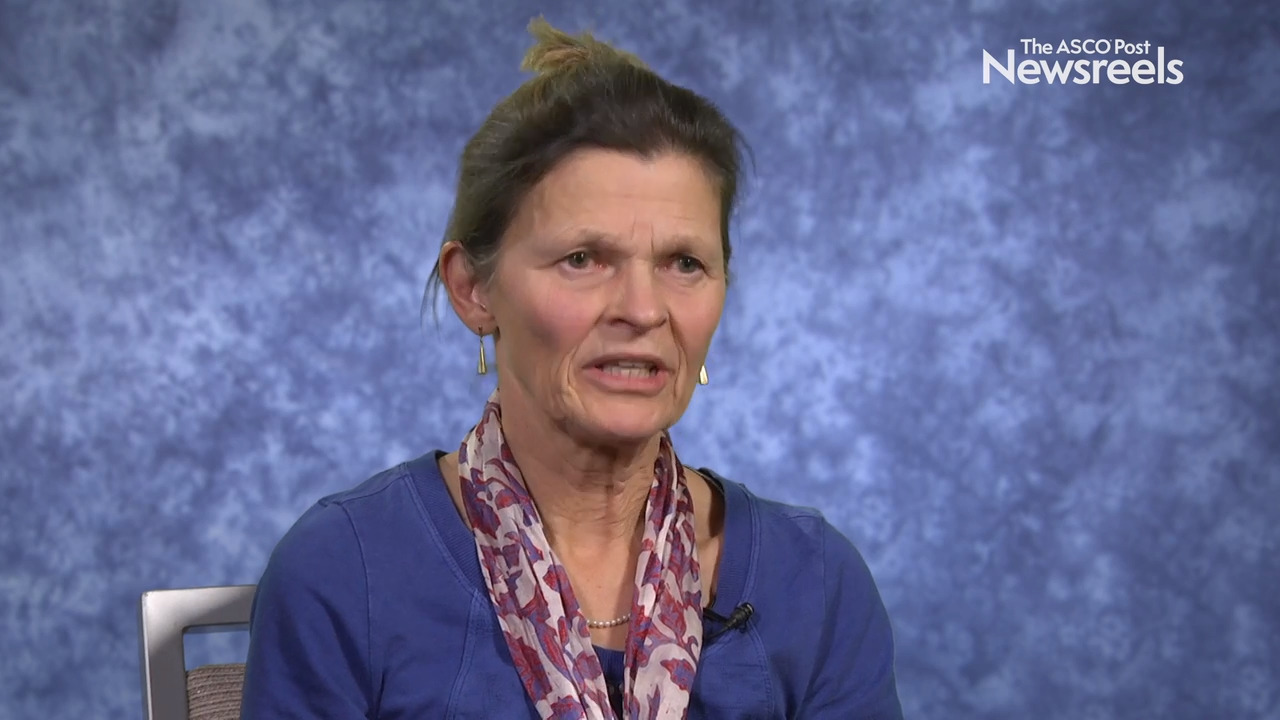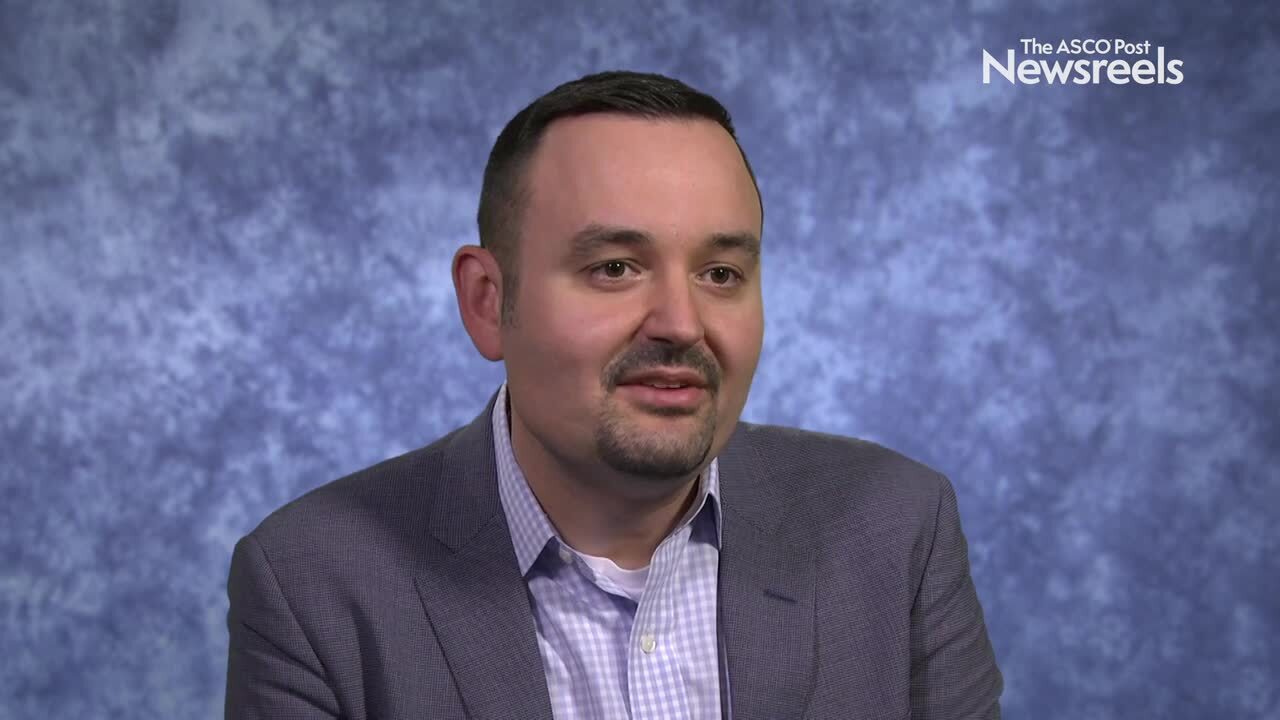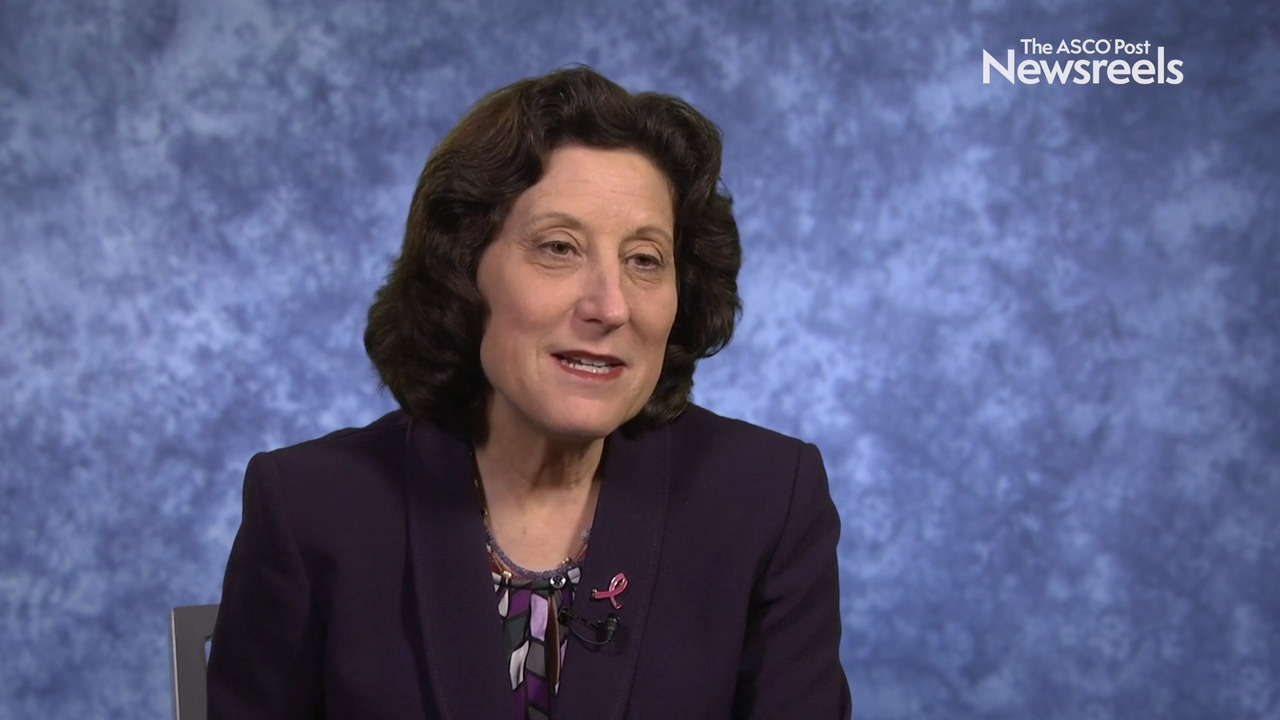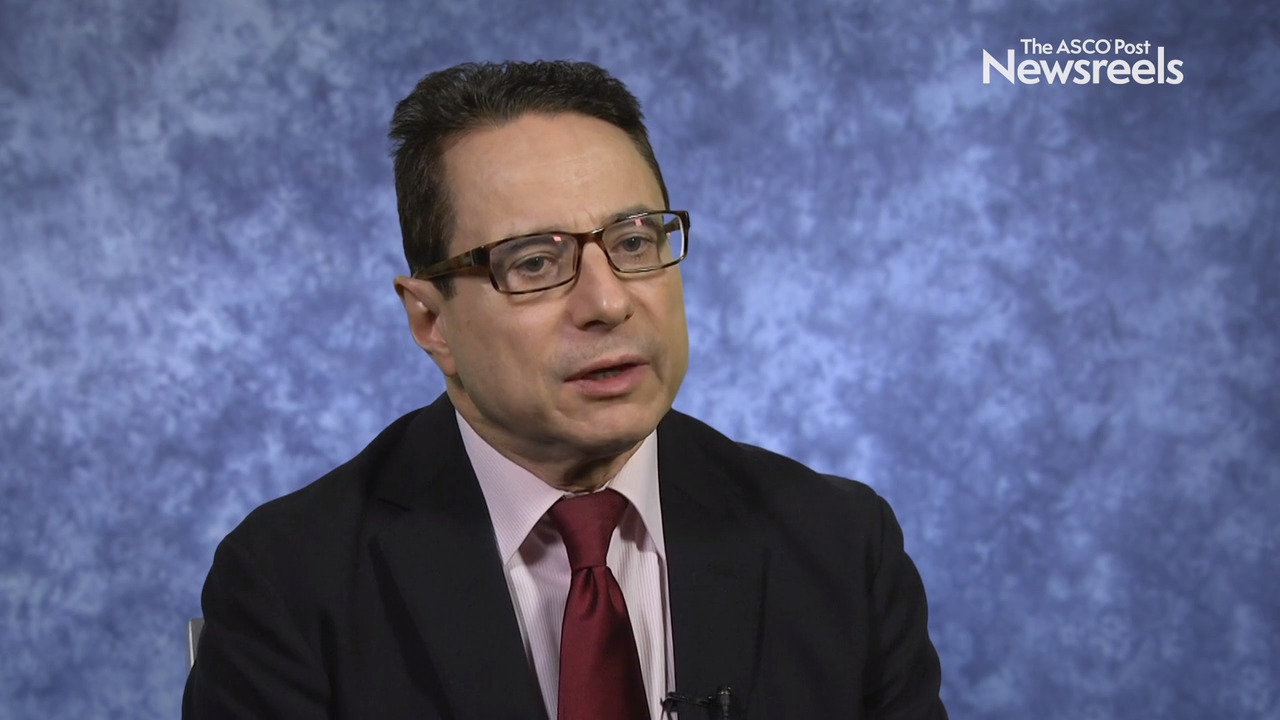Tari A. King, MD, on Molecular Differences Between Primary and Metastatic Breast Tumors
2019 San Antonio Breast Cancer Symposium
Tari A. King, MD, of Brigham and Women’s Hospital and Dana-Farber/ Brigham and Women’s Cancer Center, discusses retrospective findings from the AURORA U.S. Network on molecular differences between primary tumors and metastases, a better understanding of which may help lead to more effective treatment of metastatic breast cancer (Abstract GS3-08).
Madeleine M.A. Tilanus-Linthorst, MD, PhD, of Erasmus University, reports data from the first randomized trial comparing MRI breast cancer screening with mammography in women with a familial risk. Because MRI screening detected cancer at an earlier stage, it might reduce the use of adjuvant chemotherapy and decrease breast cancer–related mortality (Abstract GS4-07).
Milan Radovich, PhD, of Indiana University School of Medicine, discusses trial findings that show patients with triple-negative breast cancer who are at high risk of relapse after receiving preoperative chemotherapy can be risk-stratified based on the presence of minimal residual disease as determined by circulating tumor DNA and circulating tumor cells (Abstract GS5-02).
Hope S. Rugo, MD, of the University of California San Francisco Comprehensive Cancer Center, discusses trial data on margetuximab plus chemotherapy, which improved progression-free survival in patients with previously treated HER2-positive metastatic breast cancer when compared with trastuzumab plus chemotherapy. Maturing data comparing overall survival also provides new insights (Abstract GS1-02).
Ralph R. Weichselbaum, MD, of the University of Chicago, summarizes a plenary lecture in which he presented data that could guide future clinical strategies: studies supporting the basis and classification of oligometastatic disease, including breast cancer; and basic and clinical data on radioimmunotherapy (Abstract PL2).
Miguel Martín, MD, PhD, of the Gregorio Marañón Institute and GEICAM, discusses phase III study findings that showed no improvement in progression-free survival with palbociclib plus endocrine therapy vs capecitabine in patients with hormone receptor–positive/HER2-negative metastatic breast cancer whose disease progressed on aromatase inhibitors—although the drug combination was generally better tolerated than capecitabine (Abstract GS2-07).





